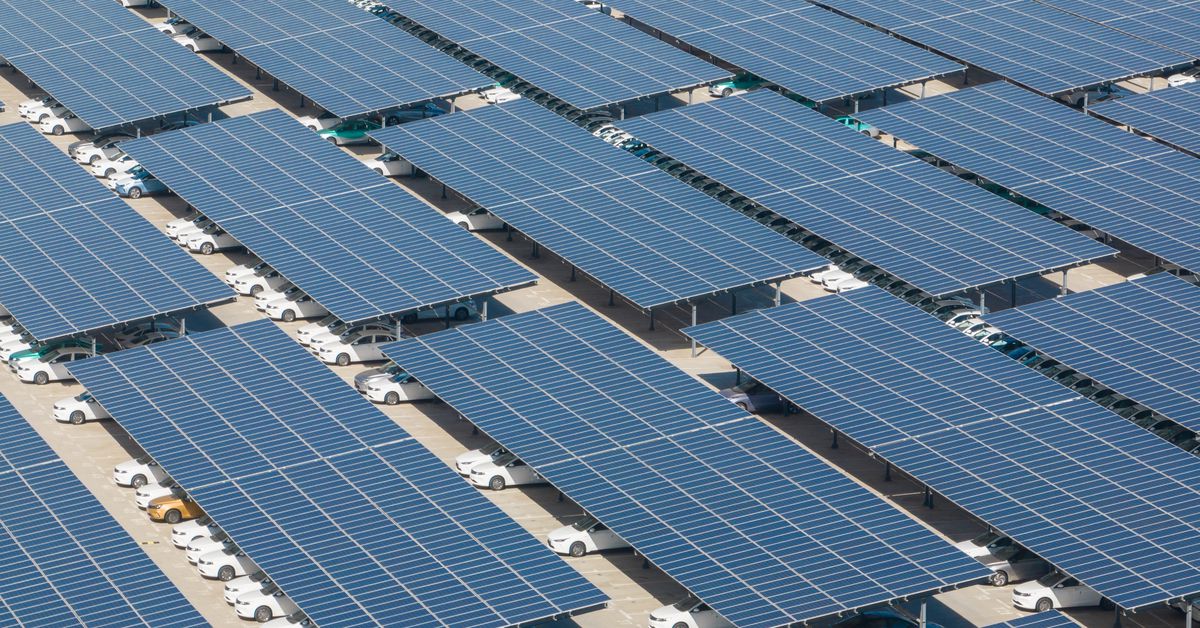
By 2030, transportation and electricity around the world will be far greener than it is today, according to the latest forecast from the International Energy Agency. Imagine 10 times more electric vehicles on the road. Renewables make up half of the world’s electricity mix. Solar panels alone generate more electricity globally than the entire US power sector does today.
That’s the picture the International Energy Agency (IEA) paints in the World Energy Outlook it published today, which is based on governments’ current energy policies. The IEA was established to help safeguard global energy supplies after the 1970s oil crisis. Now, shoring up energy systems means bringing renewables online to prevent more extreme climate change — especially as climate-fueled disasters like heatwaves and storms increasingly threaten power grids across the world.
“The transition to clean energy is happening worldwide and it’s unstoppable. It’s not a question of ‘if’, it’s just a matter of ‘how soon’ — and the sooner the better for all of us,” IEA executive director Fatih Birol said in a press release.
“It’s not a question of ‘if,’ it’s just a matter of ‘how soon’”
With renewables now the cheapest power source, solar and wind energy are loosening fossil fuels’ grip on the global economy. Demand for coal, oil, and gas is expected to peak this decade, according to the IEA’s new Outlook. This is the first time the agency has predicted that outcome in reports assessing current policies. The IEA’s Outlook also shows that governments now plan to deploy around two-thirds more renewable energy by 2030 than they did this time last year, according to energy think tank Ember.
Cleaning up pollution from homes, buildings, and transportation will require electrifying everything from cars to heating and cooling systems. The IEA now expects electric heat pumps outselling fossil fuel boilers globally by the end of the decade. And it has already seen the adoption of electric vehicles accelerate, with EVs making up one in five cars sold this year compared to one in 25 in 2020.
That’s all welcome news for policymakers attempting to slash greenhouse gas emissions causing climate change. The Paris agreement commits nearly 200 countries to working together to limit global warming to around 1.5 degrees Celsius above the preindustrial era. It’s a goal that would prevent flooding, heatwaves, fires, and other climate-related catastrophes from growing much worse.
And yet, even with all the progress that’s been made so far, the transition to clean energy still needs to speed up to meet that goal, the IEA report says. To be successful, the IEA says countries need to triple renewable energy capacity globally and triple investments in clean energy in developing economies.
For now, the world is still on track to reach roughly 2.4 degrees of global warming this century. And the report points to a potential glut in fossil gas supplies even though that runs counter to global climate goals. There’s been a surge in new liquified natural gas (LNG) projects since Russia’s invasion of Ukraine sparked fears of gas shortages, and that could wind up adding the equivalent of nearly half of today’s total global LNG supply in added capacity by 2030.
Meanwhile, world leaders are set to convene in Dubai in December for a United Nations climate summit where a global deal to phase out fossil fuels could be on the table. “Nations must come together to secure agreement on a fast, fair phaseout of fossil fuels, alongside a massive ramp-up of renewable energy and energy efficiency,” Union of Concerned Scientists policy director and lead economist Rachel Cleetus said in an emailed statement.
https://www.theverge.com/23930058/forecast-clean-renewable-unstoppable-international-energy-agency

